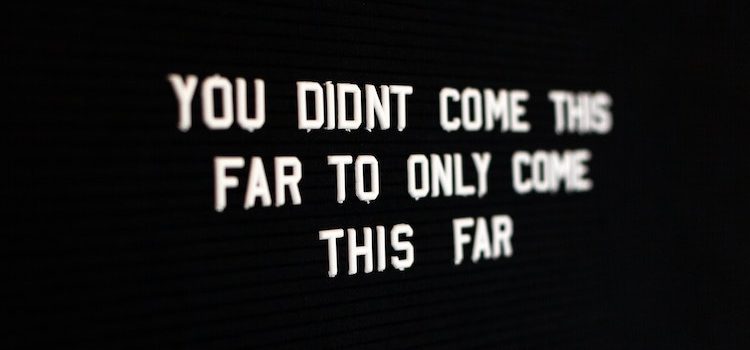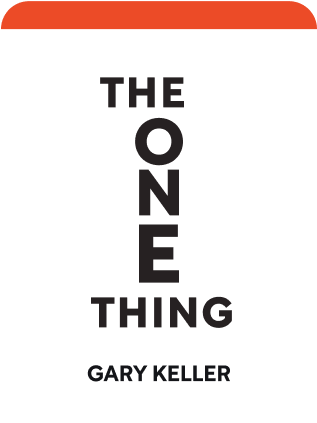

This article is an excerpt from the Shortform book guide to "The One Thing" by Gary Keller. Shortform has the world's best summaries and analyses of books you should be reading.
Like this article? Sign up for a free trial here .
What success myths are floating around out there? Which ones do you believe?
Real estate entrepreneur Gary Keller identifies six success myths that we’ve been taught. He argues that these beliefs get in the way of our ability to focus on One Thing. Ultimately, they stand in the way of our success.
Keep reading to learn about these success myths.
The 6 Success Myths
Despite our potential for huge success, most of us believe a number of myths we’ve been taught about it, which keep us from focusing on One Thing:
Success Myth 1) Everything is equally important and we must do it all. We’re flooded with new information and input constantly. Everything feels urgent and important, so we try to do everything, using an ever-increasing to-do list that gives every item equal weight. However, without prioritization, it’s merely a “survival” list. All things are not equally important. Research shows that a minority of our effort (20%) produces the majority (80%) of our results, which means focusing on the few, highest-impact things is the key to creating extraordinary results.
Success Myth 2) Multitasking gets more done. Multitasking is a myth—our brains can’t focus on more than one thing at a time. What looks like multitasking is actually task-switching as our brains go back and forth between tasks. Rather than increasing our efficiency, this process is a huge time-waster. Researchers estimate that employees are interrupted every eleven minutes and spend a third of their day recovering from interruptions. It also takes longer to do things. Depending on the complexity of the task, switching can add 25% to 100% more time to completing it. You won’t succeed in your work or life unless you figure out what matters most in the moment and give it your undivided attention.
Success Myth 3) Only people with superhuman discipline succeed. Most people have all the discipline they need to succeed. Success isn’t a result of ongoing discipline. It results from applying discipline long enough for a new habit to stick and become automatic. When you exercise discipline, you’re training yourself to act in a certain way. When you do it long enough—research shows it takes 66 days to establish a habit—the new behavior becomes routine. You become successful when you’ve strategically applied discipline to the right thing—establishing a powerful new habit.
Success Myth 4) Willpower is unlimited. Willpower is like the battery power of your phone. As you draw on the available power, the supply diminishes. You make difficult challenges harder when you don’t reserve enough willpower to help you with them. Things that sap willpower include: resisting temptation, doing a task you dislike, and suppressing emotions. The key to having willpower when you need it is to:
- Plan your day so that you’re doing your most important tasks when your willpower is at its highest level.
- Conserve willpower for when you know you’re going to need it.
- Recharge your willpower by resting or feeding your brain with complex carbs and protein.
Success Myth 5) You must live a balanced life. A balanced life in which no area is neglected—for instance work, health, or relationships—is a myth. Trying to maintain balance will keep you from achieving extraordinary success because success requires allowing some things to remain unaddressed, at least temporarily, so you can focus on what’s most important. The key is counterbalancing the way a ballerina does—by making constant adjustments with her toes and ankles.
In your work, when you focus on the most important thing, accept that other things will fall by the wayside; in your personal life, be aware of personal and family needs and constantly counterbalance to address them. To live a counterbalanced life, let the right things take precedence and tackle the rest when you can.
Success Myth 6) Don’t overreach by thinking big. Many people fear “going big” or pursuing exceptional achievement in their professional lives because it sounds difficult or like “pie in the sky.” Lowering your sights seems more prudent and realistic. However, how big you think determines your level of success, so aim high:
- Avoid incremental thinking. Stretch in every area of your life—if your goal is 10, aim for 20.
- Order off the menu. Instead of choosing from the available options, imagine new options.
- Act boldly and don’t be afraid to fail. Failure is a stepping stone to exceptional results when you learn from mistakes.
Now that you are aware of these myths, you are more likely to understand the truth about success and find it for yourself.

———End of Preview———
Like what you just read? Read the rest of the world's best book summary and analysis of Gary Keller's "The One Thing" at Shortform .
Here's what you'll find in our full The One Thing summary :
- Why focusing daily on one thing, rather than many, is the key to success
- How success is like dominos
- The six common myths about success






